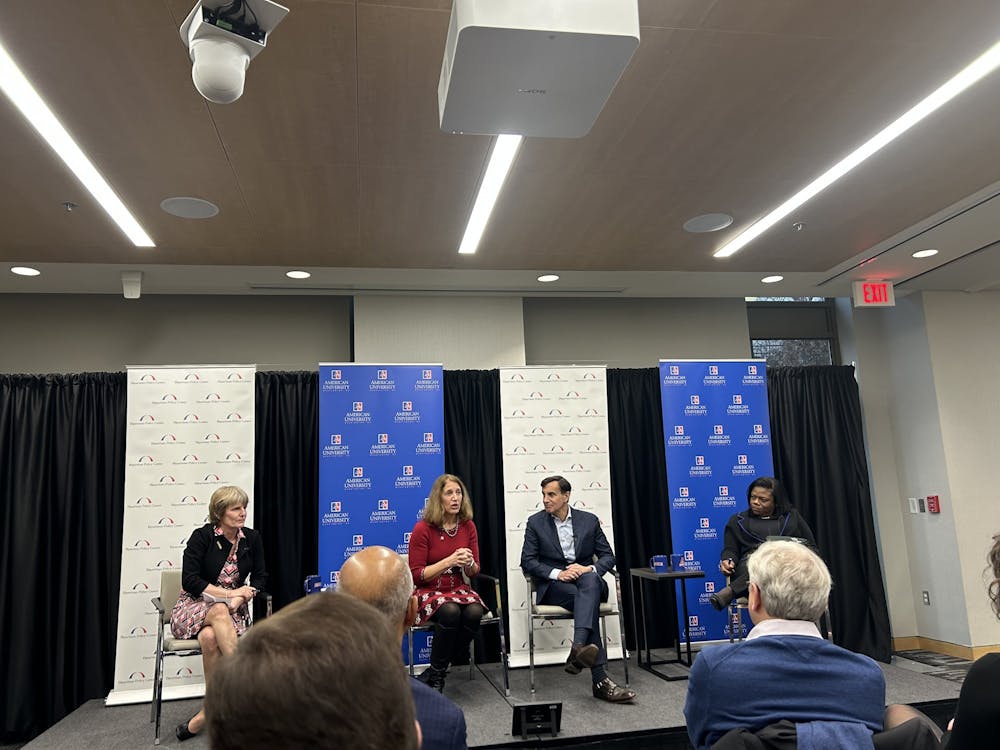American University President Sylvia Burwell spoke alongside Ron Daniels, president of Johns Hopkins University, and Taffye Benson Clayton, the vice president of inclusion and diversity for Auburn University, on the intricacies of free expression at universities with the goal of maintaining an inclusive and safe environment during a panel on Feb. 1 hosted by the Bipartisan Policy Center.
The revised version of AU’s Freedom of Expression and Expressive Conduct policy was released in August 2022, which was a part of focus of the conversation around free speech.
Burwell said the three key components of the new policy were nuance, practice in context, and values and mission, a part of the policy she continued to return to in the discussion.
“You have to consider those [components] in the context of values,” Burwell said. “What are the values we all hold? And that we are one community whether it is in the classroom, if it is in protests and having policies and approaches that are connected to your values.”
Burwell said she hopes to see AU students focus on inclusion along with freedom of speech.
“We believe we can't be a great university if we aren't inclusive, and ‘inclusive’ includes everything from issues of race, to disability, to the issues of our conservatives on campus and how they feel in the setting,” Burwell said.
Clayton discussed the importance of educating students on freedom of expression not being in conflict with inclusion, following a report from the Knight Foundation and Gallup demonstrating that college students believe otherwise.
Eighty-one percent of college students reported believing they should be exposed to all types of speech, even if it is offensive, but 76 percent of all students said diversity and inclusion frequently or occasionally come into conflict with free speech rights, according to the report.
With these findings in mind, Clayton said the approach to free speech on campuses must be inclusive and differentiated.
“Inclusive in the sense that everyone is included under the tent, and differentiated meaning we must be able to speak to the needs of diverse segments of the population very authentically,” Clayton said.
Daniels said it is the responsibility of university leaders to equip students to have difficult conversations with those of dissenting viewpoints by being committed to creating a space for that.
He called out educators who said there had not been enough done in regards to cultivating these environments for students and offered a solution of organizing speaker events featuring debates of conflicting views.
Bamidele Idaomi, a sophomore in the College of Arts and Sciences, is a founding member of the Bipartisan Group of AU who attended the event. He explained this policy came at an opportune time as polarization continues to grow across the country and on college campuses.
“I think it's very good that universities are putting in the effort to making sure that there are some type of inclusive thoughts when it comes to different aisles of perspective,” Idaomi said.
This article was edited by Zoe Bell, Jordan Young and Nina Heller. Copyediting by Isabelle Kravis, Stella Guzik, Leta Lattin, Sarah Clayton





